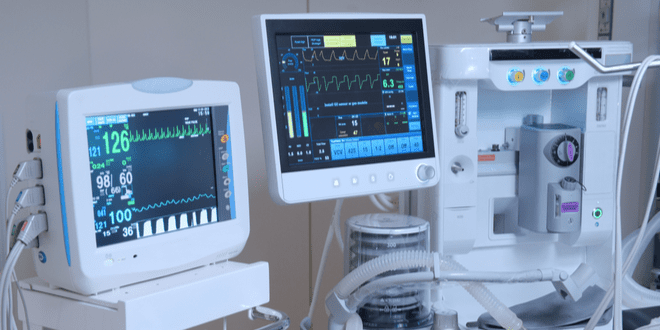Medical devices in hospitals and clinics are susceptible to cyber attacks from malicious operating instructions along with human and system errors. The result can be a matter of life and death, as abnormal or anomalous instructions introduce many potentially harmful threats to patients, such as radiation overexposure, manipulation of device components or functional manipulation of medical images.
Now, researchers at Ben-Gurion University of the Negev(BGU) in Beersheba have developed a new technique based on artificial intelligence that will protect medical devices.
Researcher Tom Mahler, a doctoral student under the supervision of BGUProfs. Yuval Elovici and Prof. Yuval Shahar in the department of software and information systems engineering (SISE), will present his research at Wednesday’s virtual 2020 International Conference on Artificial Intelligence in Medicine (AIME 2020). He has called his lecture “A Dual-Layer Architecture for the Protection of Medical Devices from Anomalous Instructions.”
Complicated medical devices such as CT (computed tomography), MRI (magnetic resonance imaging), as well as ultrasound machines, are controlled by instructions sent from a host PC. Threats can occur due to cyberattacks, human errors such as a technician’s configuration mistake or host PC software bugs.
As part of his doctoral research, Mahler has developed the technique, which uses artificial intelligence to analyze the instructions sent from the PC to the physical components using a new architecture for the detection of anomalous instructions. “We developed a dual-layer architecture for the protection of medical devices from anomalous instructions,” Mahler said.
The architecture focuses on detecting two types of anomalous instructions – context-free (CF) anomalous instructions that are unlikely values or instructions such as giving 100x more radiation than typical; and context-sensitive (CS) anomalous instructions, which are normal values or combinations of values, of instruction parameters but are considered anomalous relative to a particular context, such as mismatching the intended scan type, or mismatching the patient’s age, weight, or potential diagnosis.
“For example, a normal instruction intended for an adult might be dangerous if applied to an infant. Such instructions may be misclassified when using only the first, context-free layer. But by adding the second, context-sensitive, layer, they can now be detected,” said Mahler.
The research team evaluated the new architecture in the computed tomography (CT) domain, using 8,277 recorded CT instructions and evaluated the CF layer using 14 different unsupervised anomaly detection algorithms. Then they evaluated the CS layer for four different types of clinical objective contexts, using five supervised classification algorithms for each context. Adding the second CS layer to the architecture improved the overall anomaly detection performance from an F1 score of 71.6%, using only the CF layer, to between 82% and 99%, depending on the clinical objective or the body part.
In addition, the CS layer enables the detection of CS anomalies, using the semantics of the device’s procedure, an anomaly type that cannot be detected using only the CF layer.
The AIME 2020 conference will be hosted virtually by the University of Minnesota during the next four days because of the COVID-19 pandemic. The organizers say it will be a unique opportunity to present significant theoretical, methodological and applied results related to the application of artificial intelligence (AI) in medicine.



